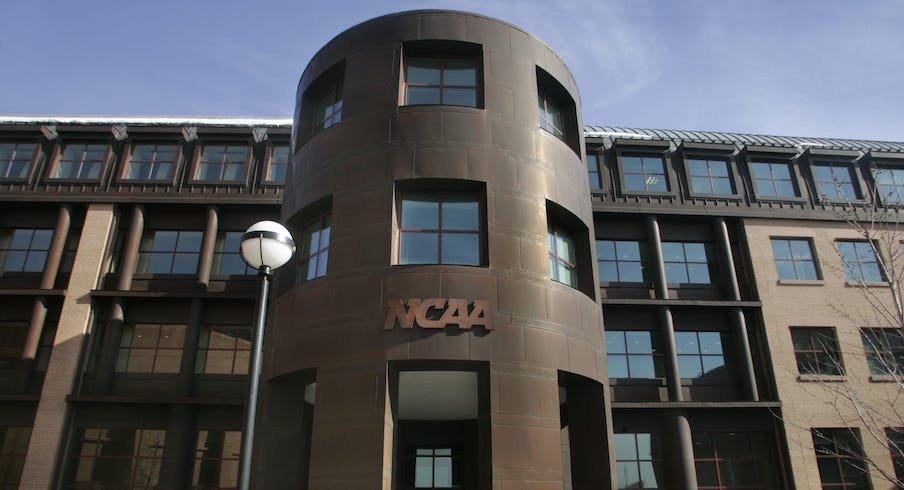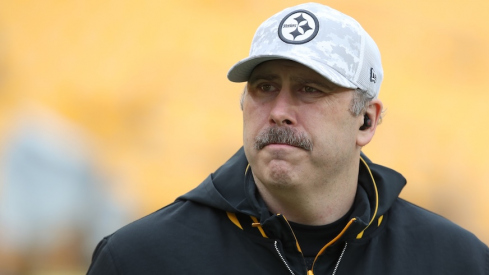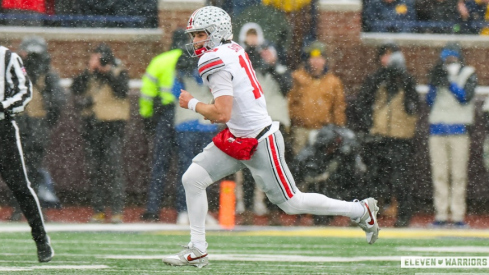By next year, college athletes are expected to be able to transfer once without sitting a year and to profit from their name, image and likeness.
Both of those developments came one step closer to reality on Wednesday, when the NCAA's Division I Council officially approved legislation for both of those measures to be voted on at the NCAA's annual convention in January, the NCAA announced Wednesday evening.
Per the transfer legislation, the one-time transfer exception – which allows athletes to transfer once in their collegiate careers without having to sit out a year – would be expanded to all sports. Under current rules, the one-time transfer exception does not apply to football, men's and women's basketball, baseball and men's hockey players, but the new legislation would allow athletes in all sports to be able to transfer and play immediately as long as they are academically eligible at their previous schools.
The new transfer flexibility would go into effect for the 2021-2022 season.
Per the proposal, both the transferring athlete and the head coach at the new school would be required to certify that no tampering took place. The transferring athlete would be required to provide written notification of their intention to transfer to the school they're leaving by May 1 for fall and winter sports athletes and July 1 for spring sports athletes, though some exceptions would apply in the case of a head coaching change or canceled scholarship.
“This proposal creates a uniform, equitable approach for all student-athletes, no matter the sport they play,” said MAC commissioner Jon Steinbrecher, the chair of the Division I Council's Working Group on Transfers. “We believe the proposal fulfills the promise of the transfer resolution adopted by the Council in the spring, and trust the membership will strongly consider bringing consistency and predictability to Division I transfer regulations while treating student-athletes across all sports alike and in a sensible fashion.”
The NCAA's name, image and likeness legislation, which would also go into effect for the 2021-22 academic year, will allow athletes to profit from their name, image and likenes through endorsements, appearances, autograph signings, camps, training sessions and more, though athletes will be prohibited from directly tying those opportunities to their schools and using school trademarks and will not be allowed to endorse products that are prohibited by NCAA rules, such as sports wagering and banned substances. Schools will be allowed to prohibit “activities that conflict with school values or existing sponsorship arrangements,” but must disclose those prohibited activities at the time a student is admitted or signs a financial aid agreements.
Athletes will be allowed to consult with agents, but only for NIL purposes and not for seeking professional sports opportunities, and athletes will be required to report all agent relationships and NIL ventures to their schools and a third-party administrator.
“This is an important milestone in the progress toward modernizing Division I rules to better support student-athletes in all of their endeavors,” said Penn athletic director and Division I Council chair M. Grace Calhoun. “We know additional refinements may be needed as we make sure modifications are fair, recognize the importance of the current recruiting structure and that every student-athlete has the same opportunity to benefit.”
The NCAA's name, image and likeness rules could end up being superseded by Congress, however, as the NCAA has asked Congress to put together its own legislation to govern name, image and likeness rules for college sports across all 50 states. Former Ohio State wide receiver and current Congressman Anthony Gonzalez is among those currently working on that legislation, having introduced a bipartisan bill in the House of Representatives last month.
Other measures approved by the NCAA's Division I Council on Wednesday included a waiver for all winter sports athletes to receive an additional year of eligibility – as fall sports athletes already have this year, and spring sports athletes did after their seasons were canceled – and for all Football Bowl Subdivision teams to be bowl-eligible this year regardless of how many games they play and win. The NCAA also introduced several pieces of legislation to be voted on in January to “ensure resources for Division I championships are allocated appropriately.”


